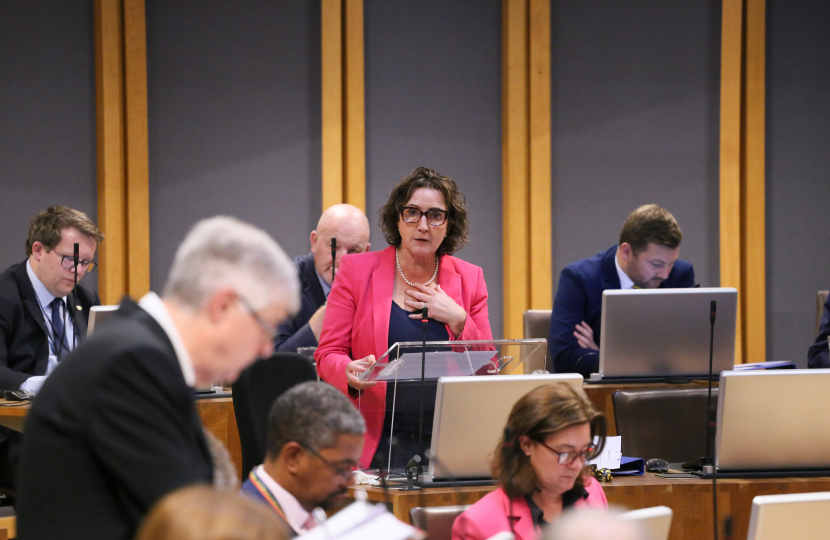
Janet Finch-Saunders, Member of the Welsh Parliament for Aberconwy yesterday challenged the First Minister on the state of homelessness in Wales.
Homelessness has reached alarming levels in Wales with over 10,000 individuals - 3,000 of them children – placed into temporary accommodation. That’s over 5,400 households, up from 2,052 in 2018 – an increase of 167%.
Additionally, according to the Office of National Statistics over 100,000 homes sat vacant in January 2024 in Wales. This is a staggering increase of 303% from 2018.
Commenting further on this Janet said:
“Homelessness is a key measure of a societies prosperity. Homelessness has become a far-reaching systemic problem in Wales today. It breaks my heart to see more people sleeping rough or stuck in a system of temporary accommodation.
“Residents living in temporary accommodation have sent powerful messages, such as:
“My depression deteriorated. But I was too scared to tell anyone – I needed to live here, because I needed a roof over my head.”,
And “My children will always remember this trauma. This is not an environment where my children should live.”
“In a modern society such as ours in Wales it is deeply upsetting to hear these stories from the people of Wales. The Welsh Government must do more to address these issues and the housing crisis more widely.”
ENDS
Fe heriodd Janet Finch-Saunders, AS Aberconwy y Prif Weinidog ar gyflwr digartrefedd yng Nghymru ddoe.
Mae digartrefedd wedi cyrraedd lefelau brawychus yma yng Nghymru gyda dros 10,000 o unigolion - 3,000 ohonyn nhw'n blant - yn cael eu rhoi mewn llety dros dro. Mae hynny dros 5,400 o aelwydydd, i fyny o 2,052 yn 2018 - cynnydd o 167%.
Ar ben hynny, roedd dros 100,000 o gartrefi gwag ym mis Ionawr 2024 yng Nghymru yn ôl ffigurau'r Swyddfa Ystadegau Gwladol. Mae hyn yn gynnydd o 303% o’i gymharu â 2018, sy’n frawychus.
Meddai Janet:
“Mae digartrefedd yn fesur allweddol o ffyniant cymdeithas. Mae digartrefedd wedi dod yn broblem systemig bellgyrhaeddol yng Nghymru bellach. Mae'n torri fy nghalon gweld mwy o bobl yn cysgu ar y stryd neu'n sownd mewn system o lety dros dro.
“Mae preswylwyr sy'n byw mewn llety dros dro wedi anfon negeseuon pwerus, fel:
“Mae dros dro yn teimlo'n barhaol iawn”,
“Aeth fy iselder o ddrwg i waeth. Ond roedd gen i ormod o ofn dweud wrth neb - roeddwn i angen byw yma, achos ro'n i angen to uwch fy mhen."
A "Bydd fy mhlant i wastad yn cofio'r trawma hwn. Nid dyma'r math o amgylchedd y dylai fy mhlant fyw ynddo.”
“Mewn cymdeithas fodern fel ein un ni, mae clywed straeon o'r fath gan bobl Cymru yn dorcalonnus. Rhaid i Lywodraeth Cymru wneud mwy i fynd i'r afael â'r problemau hyn a'r argyfwng tai yn ehangach.”
DIWEDD

